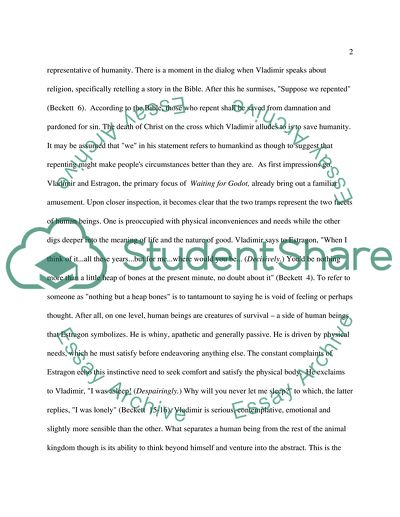Cite this document
(“A Literary Response to Waiting for Godot Essay Example | Topics and Well Written Essays - 2000 words”, n.d.)
A Literary Response to Waiting for Godot Essay Example | Topics and Well Written Essays - 2000 words. Retrieved from https://studentshare.org/literature/1550418-finalpaper-see-instructions
A Literary Response to Waiting for Godot Essay Example | Topics and Well Written Essays - 2000 words. Retrieved from https://studentshare.org/literature/1550418-finalpaper-see-instructions
(A Literary Response to Waiting for Godot Essay Example | Topics and Well Written Essays - 2000 Words)
A Literary Response to Waiting for Godot Essay Example | Topics and Well Written Essays - 2000 Words. https://studentshare.org/literature/1550418-finalpaper-see-instructions.
A Literary Response to Waiting for Godot Essay Example | Topics and Well Written Essays - 2000 Words. https://studentshare.org/literature/1550418-finalpaper-see-instructions.
“A Literary Response to Waiting for Godot Essay Example | Topics and Well Written Essays - 2000 Words”, n.d. https://studentshare.org/literature/1550418-finalpaper-see-instructions.


